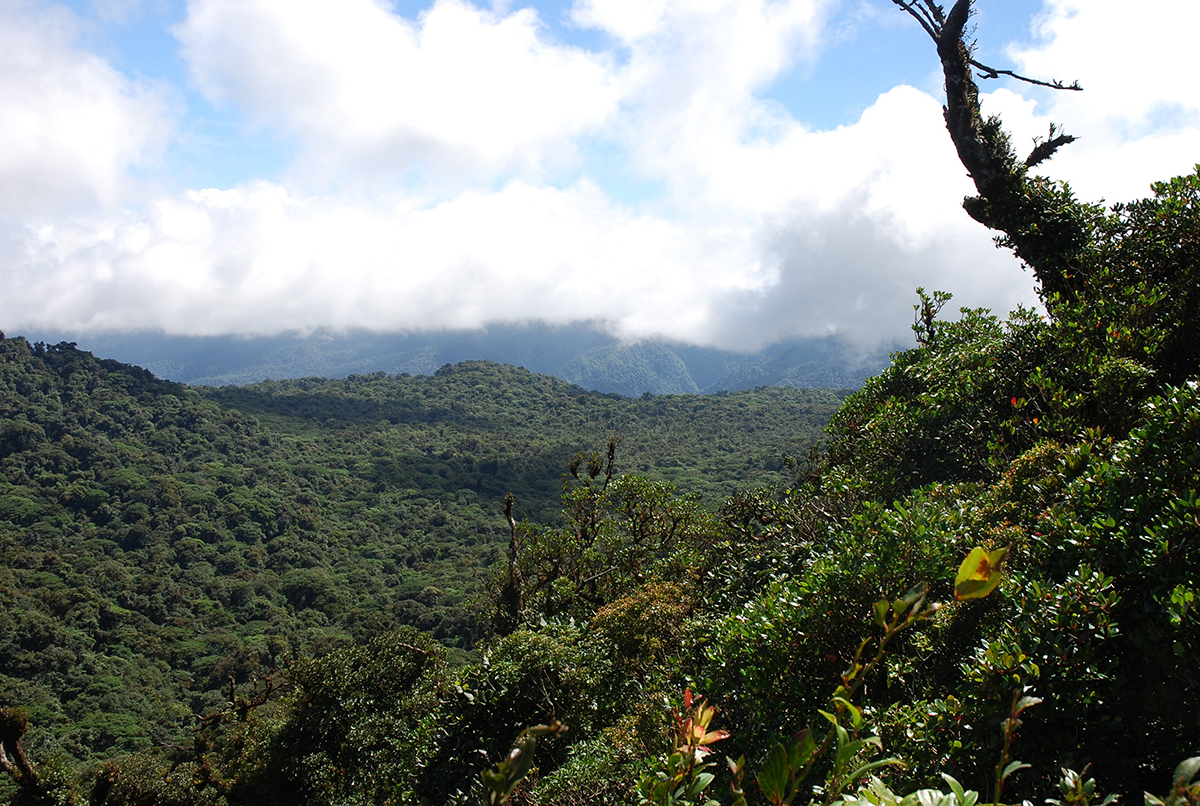Climate Change, Biological Impacts and Climate-Smart Conservation for Tropical Montane Cloud Forests

Karen Masters, center director at CIEE Global Institute, will discuss research conducted in the cloud forests of Monteverde, Costa Rica.
Tropical montane cloud forests, celebrated for their high species richness and endemism, are under threat by large-scale warming which impacts local climate in surprising and impactful ways. Early studies conducted in the cloud forests revealed some of the first evidence of biological response to climate change, including shifts, decline and loss of animal populations. Ongoing research points to a shift from once-consistent precipitation to increasing precipitation variability, characterized by expanding dry periods that alternate with intensification of input, on the scale of days and weeks.
Preliminary evidence points to potential negative impacts for orchids, which reach record levels of species diversity at Monteverde. Overall patterns suggest that the nature of climate change at Monteverde presents particular challenges for conservation management that necessitate “climate-smart” strategies, formulated for biodiversity resilience at local and regional scales.
Karen Masters earned a BS in biology at the University of Michigan, MS in zoology at the University of Florida and a PhD in ecology and evolutionary biology at Princeton University. She teaches tropical ecology, conservation and sustainability. She has published on climate change, conservation and climate-smart agriculture.
Her presentation is part of the weekly Science and Mathematics Colloquium series in ASU's College of Integrative Sciences and Arts.